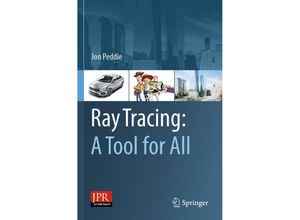This is the first book to offer a comprehensive overview for anyone wanting to understand the
benefits and opportunities of ray tracing as well as some of the challenges without having to
learn how to program or be an optics scientist. It demystifies ray tracing and brings forward
the need and benefit of using ray tracing throughout the development of a film product or
building - from pitch to prototype to marketing. Ray Tracing and Rendering clarifies the
difference between conventional faked rendering and physically correct photo-realistic ray
traced rendering and explains how programmer's time and backend compositing time are saved
while producing more accurate representations with 3D models that move. Often considered an
esoteric subject the author takes ray tracing out of the confines of the programmer's lair and
shows how all levels of users from concept to construction and sales can benefit without being
forced to be a practitioner. It treats both theoretical and practical aspects of the subject as
well as giving insights into all the major ray tracing programs and how many of them came
about. It will enrich the readers' understanding of what a difference an accurate high-fidelity
image can make to the viewer - our eyes are incredibly sensitive to flaws and distortions and
we quickly disregard things that look phony or unreal. Such dismissal by a potential user or
customer can spell disaster for a supplier producer or developer. If it looks real it will
sell even if it is a fantasy animation. Ray tracing is now within reach of every producer and
marketeer and at prices one can afford and with production times that meet the demands of
today's fast world.



